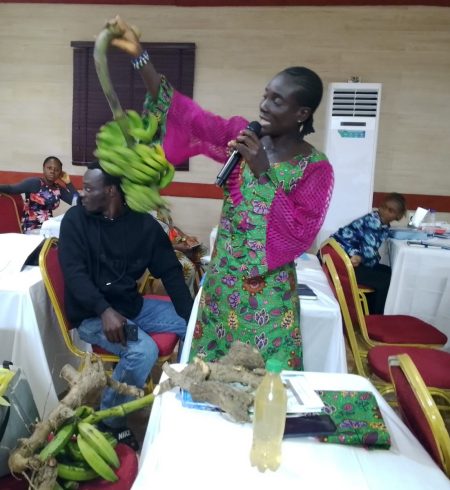 28 November 2012, Sweetcrude, LAGOS – Oando Marketing Plc’s recently-launched Liquefied Petroleum Gas, LPG programme,under which the company introduced OGAS 3kilogramme cooking stove for low income households, is capable of solving the perennial problem of deforestation in Nigeria.
28 November 2012, Sweetcrude, LAGOS – Oando Marketing Plc’s recently-launched Liquefied Petroleum Gas, LPG programme,under which the company introduced OGAS 3kilogramme cooking stove for low income households, is capable of solving the perennial problem of deforestation in Nigeria.
This revelation was one of the high points of the presentations and discussions during a recent Oando/Access–Agriculture, Climate Change and Entrepreneurship Support Services summit held in Abuja with the theme “LPG as a climate control tool in Africa: The Sustainability Agenda.”
According to the discussants, the clamour for the use of LPG for cooking was premised on the fact that it would check uncontrolled felling of trees for firewood, with its attendant deforestation and indoor air pollution.
This year’s summit, the first edition, which was chaired by a former First Lady and Founder, Women’s Right Advancement and Protection Alternative, WRAPA, Justice Fati Abubakar, noted that over 90 per cent of households in Nigeria use firewood or Kerosene despite harmful effects.
The summit acknowledged that though deforestation was a global challenge, it noted that a situation where three million cubic feet of wood was cut annually for firewood in a country, which ranked as sixth largest producer of natural gas in the world was unacceptable.
The Chief Executive Officer, Oando Marketing, Mr Yomi Awobokun, in a lead presentation remarked that “Annually, the country spends about N5billion to tackle desertification through the national afforestation programme. This cost is avoidable. Nigeria is the 6th largest producer of gas in the world.
If we government at all levels adopt the use of LPG as the preferred cooking fuel, avail the people, especially those in rural Nigeria, an affordable cooking stove like the OGAS 3kg stove, we will be making tremendous saving that can be committed to other important areas of our national life”
Citing statistics from relevant national and global bodies, the Operations Director, Access Africa, Mr. Jerome Okolo, said Nigeria lost 55.7per cent of its primary forests between 2000 and 2005.
With the country also losing 351,000 hectares of landmass to desert conditions, according to statistics, Okolo said the rationale behind the proposal for a switch from firewood to LPG was also to save the country from drought.
Okolo noted that the N760billion spent annually on kerosene subsidy by the Federal Government was equivalent to 16 per cent of the country’s annual capital budget. He added that Nigeria required an estimated 20million cylinders to switch from kerosene to LPG, thereby saving the government over N760 billion annually.
The Oando’s initiative, which brought together many national and international stakeholders, including the British Department for International Development, DFID, to mobilise commitment towards the adoption of LPG as the preferred cooking fuel, was a boost to the United Nations collaborative programme on Reducing Emissions from Deforestation and forest Degradation, UN-REDD, in developing countries.



